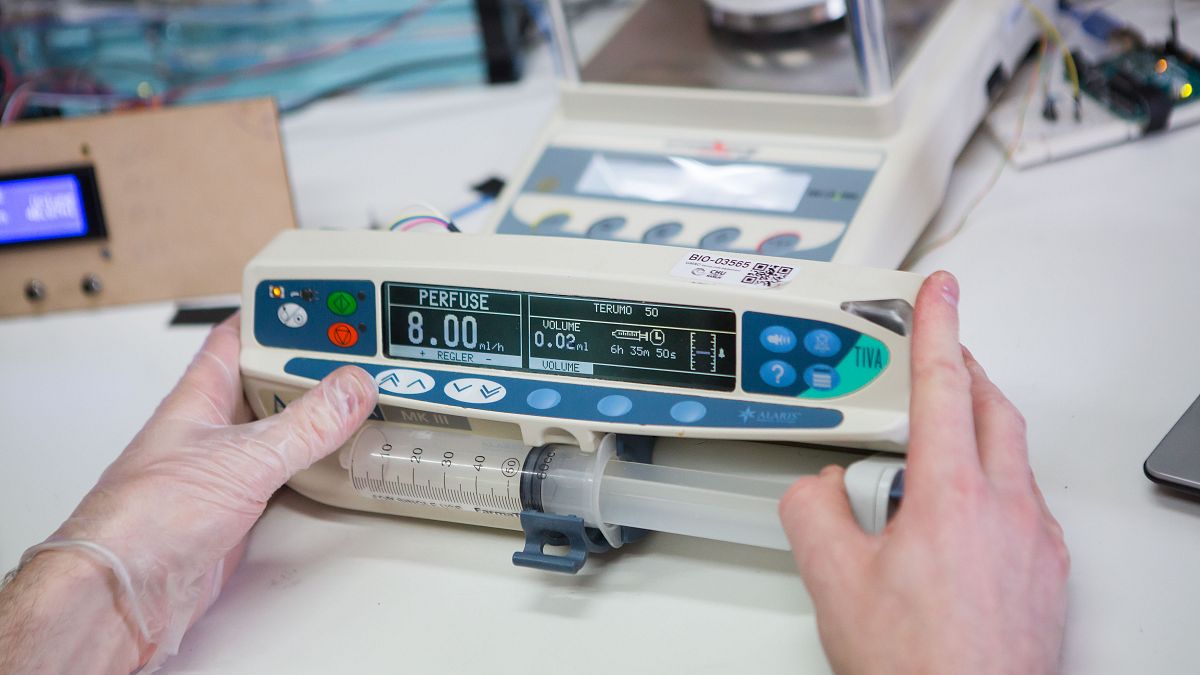MEPs push Commission to re-open EU medical device law quickly

The European Commission is wavering over whether to revise long-delayed EU rules for medical devices such as syringes, pacemakers, and breast implants, but many lawmakers want it to move faster to avoid gumming up the market.
In a Wednesday debate, MEPs pushed to reform a controversial law that some fear could mean shortages of key medical devices — but any legal proposals will need to await a full evaluation, the European Commission said.
In recent years, member states have faced difficulties implementing the current EU regulations, which cover a wide range of medical devices from advanced X-ray machines and pacemakers to everyday items like contact lenses, syringes, and bandages.
The existing framework, revamped in the 2010s to replace outdated 1990s regulations, seeks to make medical devices safer and more available. In 2017, Brussels introduced additional rules for in vitro diagnostic devices, such as glucose meters and HIV tests.
In practice, the rules don’t seem to easily fit with the diverse and complex EU industry, as new safety standards potentially require thousands of existing medical devices to be re-approved and re-certified.
One major issue has been member states’ failure to say which bodies will assess product compliance, raising fears that critical medical devices could become unavailable in the EU market.
Commission seeks more time
The EU has repeatedly extended the transition period for gaining certification, delaying full implementation of the framework — which, according to Commission Vice-President Věra Jourová, has helped avoid device shortages.
“This has given manufacturers and notified bodies vital additional time to transition to the new rules,” Jourová, whose term of office is likely to expire within weeks, told MEPs in Strasbourg.
She added that the number of designated certification bodies has increased to 50 for medical devices and 13 for in vitro diagnostic tools, with applications for certification rising.
But Jourová admitted that these measures alone do not constitute a long-term solution, and promised to hold initial consultations by the end of this year — much earlier than the original May 2027 timeline.
EU manufacturers’ association MedTech Europe has stressed the urgent need for reforms, given the impact on the industry. “Reforming the regulations properly and sustainably will take time. Until then, we need measures to relieve immediate pressure,” the lobby group said in a note.
But the Commission’s timetable likely means a legal proposal, if it happens at all, is years away, disappointing MEPs who want immediate action.
Within 100 days of new Commission
Peter Liese (Germany/European People’s Party) criticised the EU executive’s ambition as “too weak”.
“We’re being told 2026 [for the presentation of a new proposal]. That’s too late,” he said, calling on Commission chief Ursula von der Leyen “to go faster” and present the reform within 100 days of her new administration.
Liberal MEP Andreas Glück said the EU needs “an overhaul of the regulation as a matter of utmost urgency, particularly in the case of paediatric surgery.”
Others were more cautious. “I believe the Commission has sufficient tools and instruments to implement allocated tasks,” said socialist Vytenis Andriuakaitis, who was EU health commissioner at the time current rules were approved.
Andriuakaitis said the current transition period is adequate, and urged stakeholders and member states to implement existing rules without additional delays.
“We should not rush when it comes to reviewing this very important legislation,” said Green MEP Tilly Metz, warning that patient safety and transparency should not be sacrificed for competitiveness or deregulation.
World News || Latest News || U.S. News
Source link



